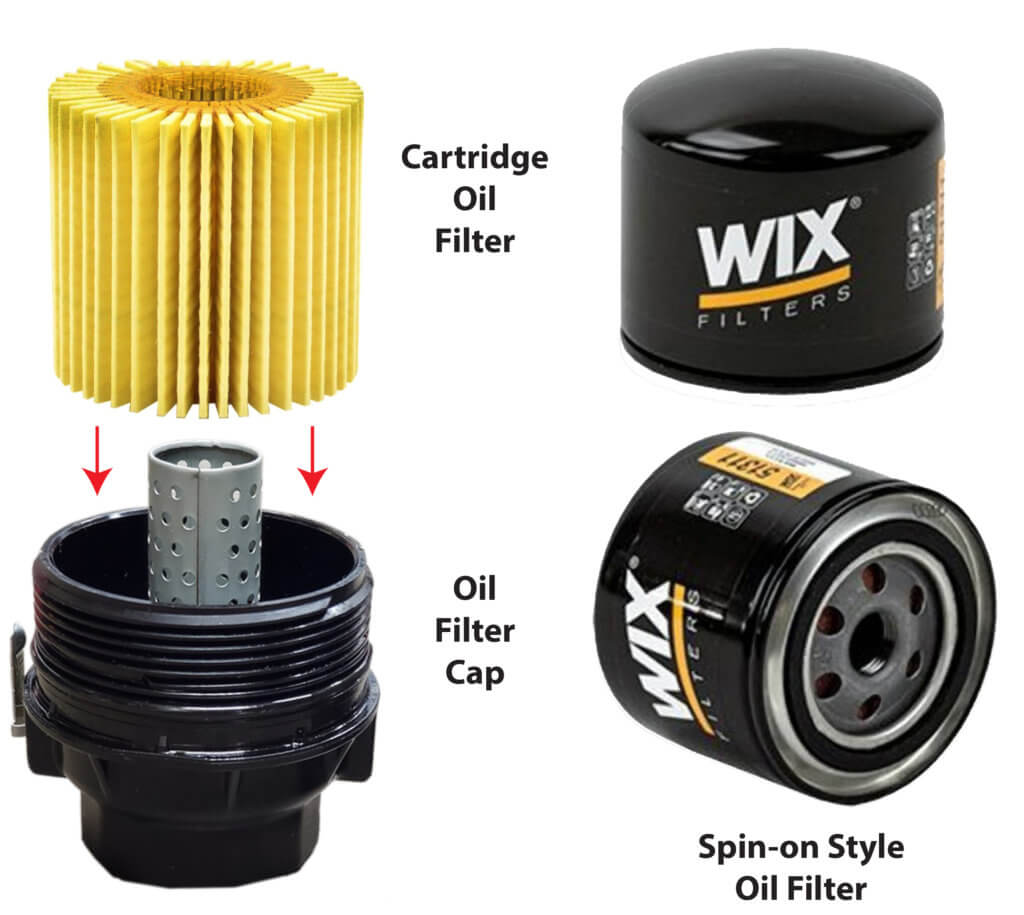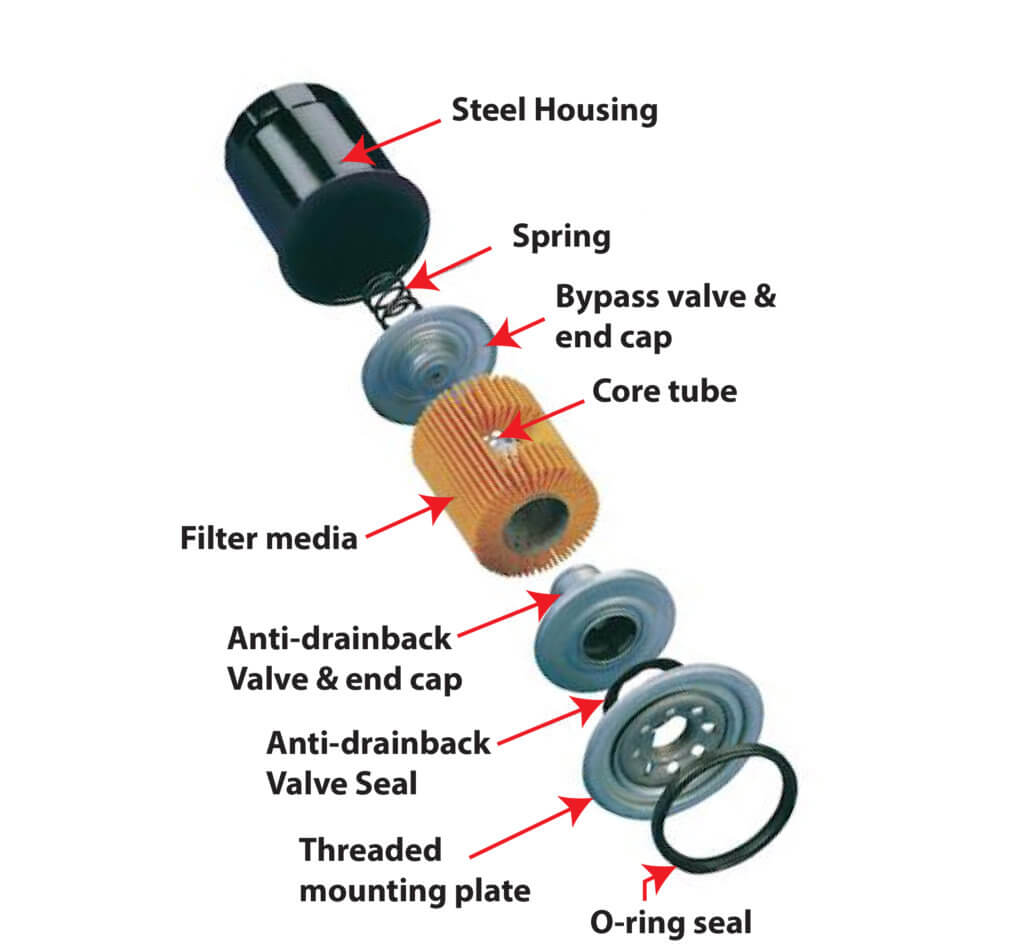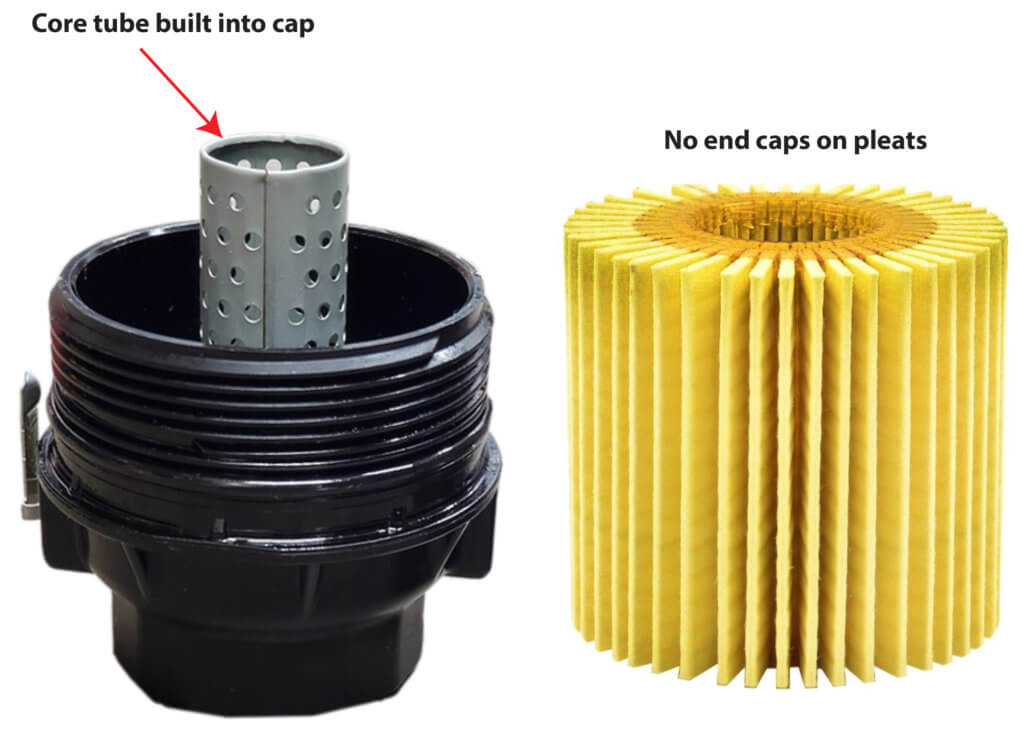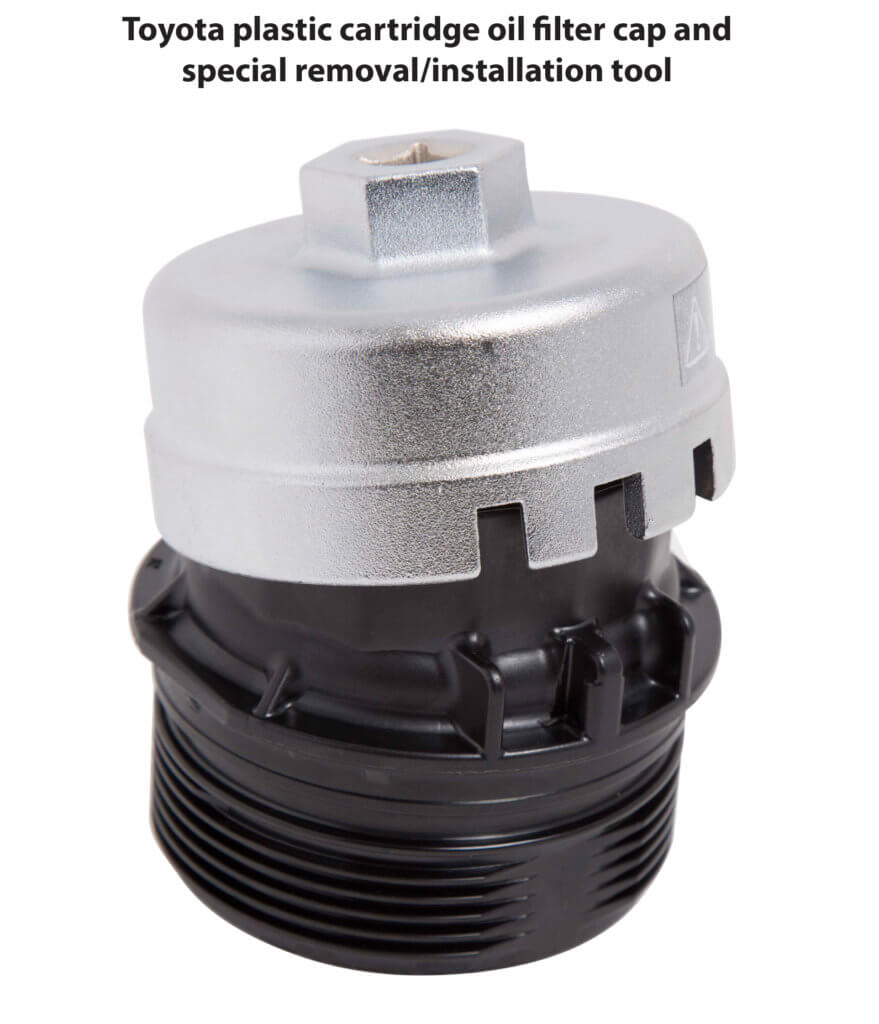Cartridge versus spin-on oil filter
Which is better, a cartridge versus spin-on oil filter
Cartridge oil filters were the preferred style in the early days. Then carmakers switched over to spin-on filters. Now they’re switching back to cartridge filters. I’ll talk about why they’re doing that and answer the most common question; What’s the difference between a Cartridge versus spin-on oil filter. 
Cost: Spin-on oil filters cost more to manufacture
Spin-on oil filters cost more to manufacture than a cartridge filter simply because they have more parts. Depending on the engine, a spin-on oil filter contains a steel housing, steel spring, a combination steel and plastic bypass valve, steel core tube, steel anti-drainback valve, nitrile or silicone anti-drainback seal, a steel mounting plate, and an O-ring seal.
Many of those parts, like the anti-drainback and bypass valve can be built into the engine that uses a cartridge style filter.

For example, here’s a look at a cartridge-style system where the core tube, the structure that supports the pleats and prevents them from collapsing is built into the oil filter cap. In this system, the filter is just the filter media with no end caps. The pleats on this type of filter seal against the cap and the oil filter housing.

Ease of use: Spin-on filters are easier to replace but make a bigger mess
A spin-on filter is usually mounted at the bottom or side of an engine. During removal, unscrewing the filter releases a flood of dirty oil onto the tech or DIYer that requires clean up. Many cartridge filter caps, on the other hand, allow the tech or DIYer to drain oil from the filter before loosening the cap. That eliminates or greatly reduces the mess.
Special tools: Cartridge style filter caps usually require special tools for removal
Most cartridge-style caps require a special socket or cap wrench, while spin-on oil filters can be removed with a variety of common oil filter wrenches.

Torque: Cartridge oil filter caps are very sensitive to over-torquing
You should use a torque wrench when installing a cartridge-style cap. Over torquing can cause a plastic oil cap to crack and fail or become seized to the oil filter housing. Overtightening a spin-on filter makes it far more difficult to remove, but doesn’t cause damage.
Filtration efficiency: Same
A high-quality spin-on oil filter will have the same filtering efficiency as a comparable cartridge filter
Eco-friendly: Cartridge oil filters are far more ecologically friendly
Spin on oil filters must be crushed before recycling. Even then, they retain a lot of oil that must be burned off before the metal can be recycled. Cartridge filters, on the other hand, retain far less oil when compressed and there’s little to no metal needed during manufacturing and less to recycle afterwards
© 2020 Rick Muscoplat
Posted on by Rick Muscoplat